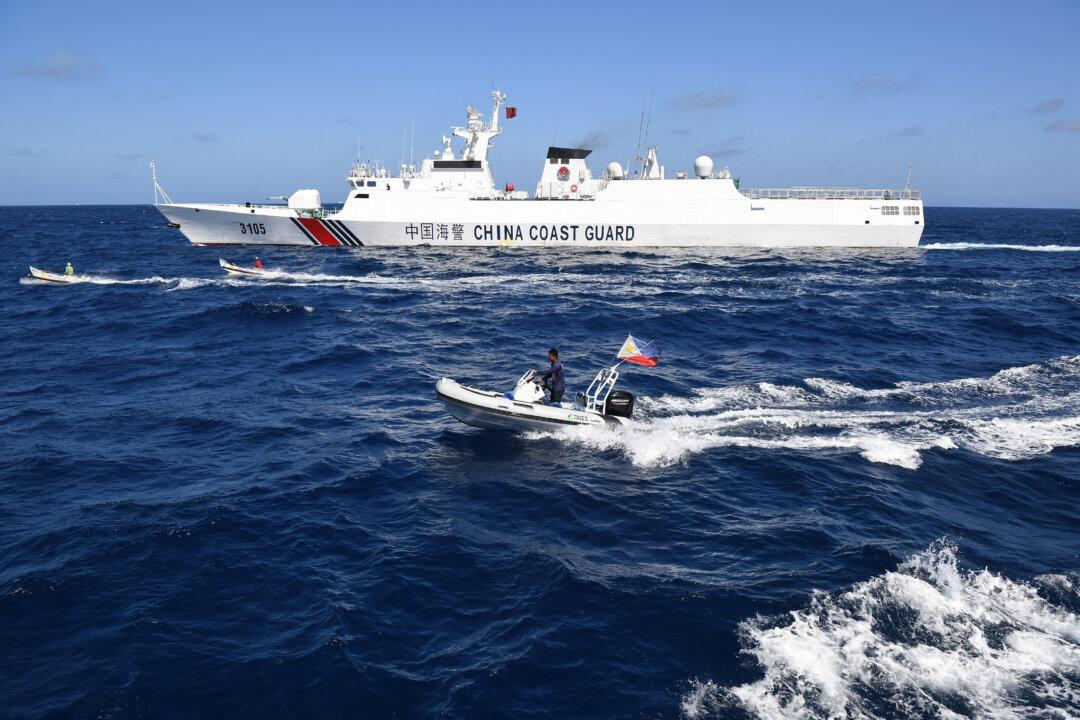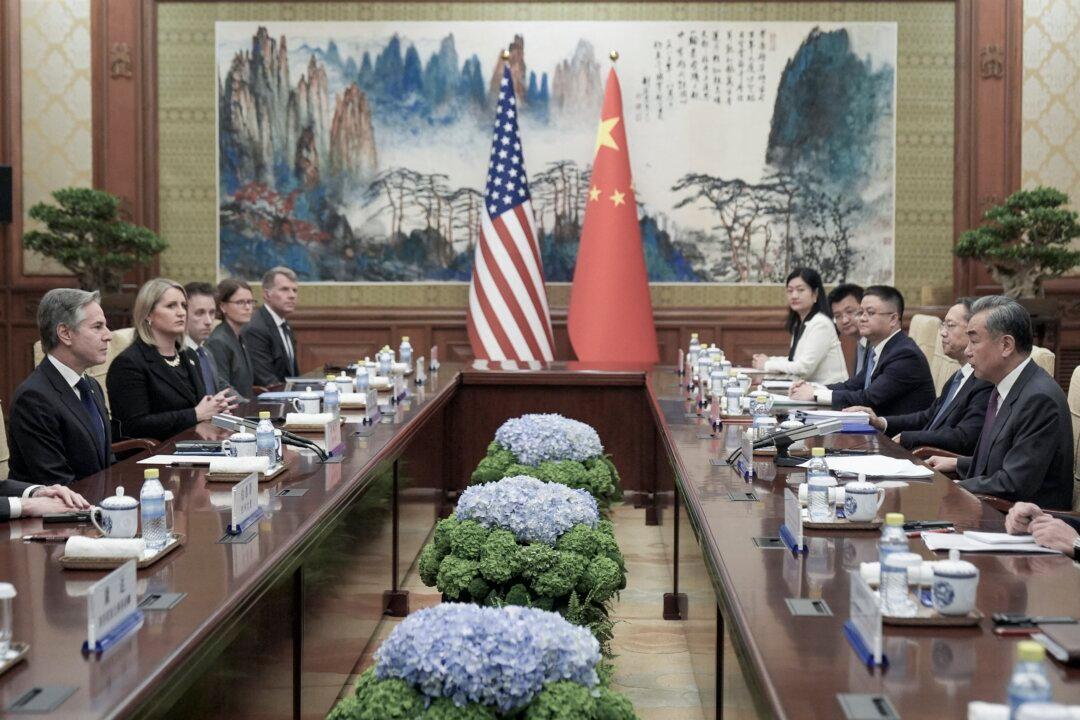China is swarming the waters of the Philippines, hoping to intimidate Manila into surrendering territory. U.S. President Joe Biden and the State Department keep on issuing warnings, but Chinese leader Xi Jinping continues to ignore them, suggesting that deterrence is failing and that an incident leading to war could occur at any time.
Of the craft spotted on April 15, 48 were from China’s maritime militia, six were from the China Coast Guard, and one was from the People’s Liberation Army Navy.
China’s intrusions that day were spread across the South China Sea. Twenty-six of the vessels were spotted at Scarborough Shoal, six at Second Thomas Shoal, 20 near Pagasa Island, two near Panata Island, and the remaining one at Lawak Island.
Beijing claims all the features and waters inside its infamous “cow’s tongue,” now defined by 10 dashes on official maps, which encloses about 85 percent of the South China Sea. Those waters, the Chinese proclaim, are its “blue national soil.”
Beijing, with virtually no legal support, has consistently maintained that the decision in favor of Manila “is illegal, null, and void.”
Unfortunately, the Biden administration’s words and displays of solidarity have not impressed Xi. His blue, white, and gray hulls—the maritime militia, coast guard, and navy, respectively—have stepped up aggressive tactics.
Has deterrence failed? True, China has not recently landed troops at a Philippine island, shoal, or reef. Yet the persistent pressure applied to the Philippines suggests that Xi is not terribly worried about the United States opposing his adventurism.
Why would he feel so bold? For one thing, the Clinton administration in 1995 did nothing after China seized and later fortified Mischief Reef, 130 nautical miles from the Philippine island of Palawan and in the exclusive economic zone of the Philippines.
More recently, China took Scarborough Shoal. Philippine authorities there had lawfully detained Chinese poachers in early 2012, and China’s vessels then swarmed the feature, only 124 nautical miles from the main Philippine island of Luzon and about 550 nautical miles from China’s Hainan Province.
Washington then brokered an agreement for both sides to withdraw their craft, but only Manila complied. Beijing has been in firm control of Scarborough ever since. The Obama administration, while Mr. Biden, then vice president, was in charge of foreign policy, did not oppose the audacious Chinese seizure.
When Chinese leaders, generals, and admirals saw Washington’s failure to act, they began moving against Second Thomas Shoal and other Philippine reefs and islets in the South China Sea, went after Japan’s islets in the East China Sea, and began reclaiming and militarizing features in the Spratly chain. Mr. Biden as vice president legitimized the worst elements in the Chinese political system by showing everyone that aggression works.
Now, President Biden has legitimized hostile acts elsewhere. His foreign policy collapsed after the disastrous withdrawal from Afghanistan in August 2021. Since then, Beijing has been waging proxy wars on three continents: Europe (in Ukraine), Africa (across its northern rim), and Asia (in Israel and surrounding areas).
President Biden’s failure to oppose China’s wars—he seems much more interested in restraining victim Israel than aggressor Iran—must be convincing Xi that he has a green light to do whatever he wants. After all, Xi apparently now believes that he is the boss of the world.
President Biden is now trying to reestablish deterrence. Britain and France desperately attempted to do that in the summer of 1939, when they warned Germany that they would declare war if it invaded Poland. Then, German leaders did not believe that the British and the French would in fact fight, because for three years, they had failed to make good on previous warnings.
The United States, therefore, is left with only risky options to deter China in the South China Sea.
“Once a country loses credibility and prestige, it must fall back on military force to achieve its aims,” Gregory Copley, president of the International Strategic Studies Association and editor-in-chief of Defense and Foreign Affairs Strategic Policy, told this author. “The U.S. has lost both around the world.”
Thanks to President Biden, the United States is now the Britain and France of our decade, and the world is again on the brink of global conflict. Some 55 craft in Philippine waters tells us that China thinks it has a free hand.






